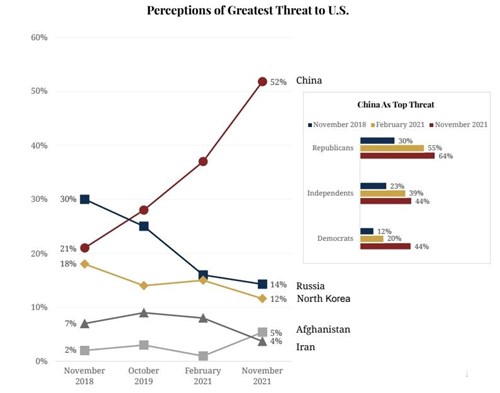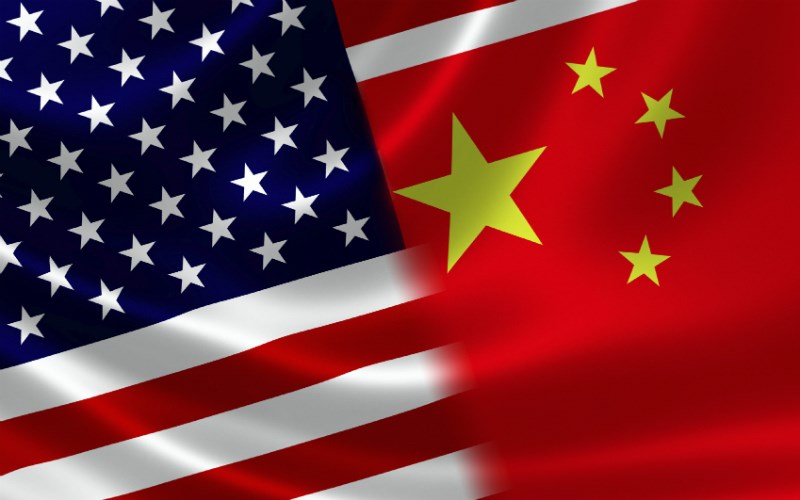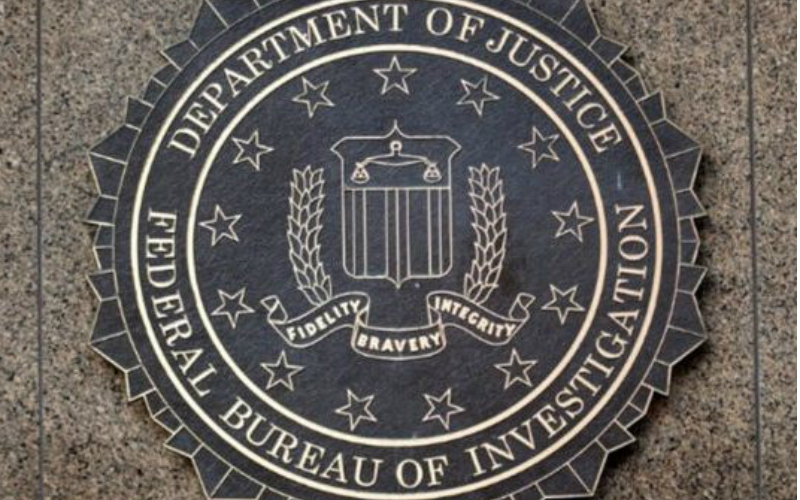According to this year's Reagan National Defense Survey, 52% of Americans consider the Chinese regime to be the top threat facing the United States today. Across party lines and over the last three years (see figure below), fear has grown that the U.S. is on the brink of war with the East Asian country.
 |
Click on image for a larger version
David Sauer is a retired senior CIA officer who served as chief of station and deputy chief of station in multiple overseas command positions in East Asia and South Asia. Sauer tells American Family News that the Chinese regime has conducted a number of actions that he contends "has really sparked a lot of concern with the American people about China's intentions" in the region and around the world. Those actions, in part, include:
- A record number of Chinese warplanes entering Taiwan's air defense zone
- The militarization of islands in the South China Sea
- The use of disinformation campaigns during the outbreak of COVID-19
- Efforts to hide the origin of the coronavirus
- Professional tennis player Peng Shuai's disappearance following accusations of sexual against China's former Vice-Premier
- China's treatment of Uighurs and other ethnic Muslim minorities
- China's rapidly expanding nuclear arsenal
- Recent reports of a hypersonic glide vehicle
- China's espionage campaign
- The theft of intellectual property and research and development information
If the threat is real, how soon?
According to the former CIA officer, the Chinese Communist Party "continues to be very powerful" and is "showing signs and making their best attempts to ensure that no one will be able to challenge them."
Sauer doesn't believe concerns over a war with China in the short term are completely warranted. Over the next year or so, he expects to see Beijing continue its regional conflicts at India's border as well as other operations in Afghanistan and Tajikistan to target the Turkistan Islamic Party. All the while, he assumes, the Chinese will remain "very fixated" on Taiwan.
However, he says it must be taken into account that there are a few things happening in China that will likely delay any large-scale conflict in the immediate future. For example, the Winter Olympics is being hosted by Beijing, the celebratory Chinese New Year is on the way, and the solidification of Xi Jinping's reelection as president of China will occur in 2022.
"It's doubtful the Chinese regime will go to war during this time, as there are just too many variables at stake," Sauer indicates.
That said, he expects "the world will see the storm clouds staring to build" after Jinping has his third term endorsed in the latter part of 2022. That, says Sauer, would bring the United States a step closer to a war with China – especially as the communist regime continues to exert its power on Taiwan.
"Perceptions" image excerpted from Reagan National Defense Survey of 2021







